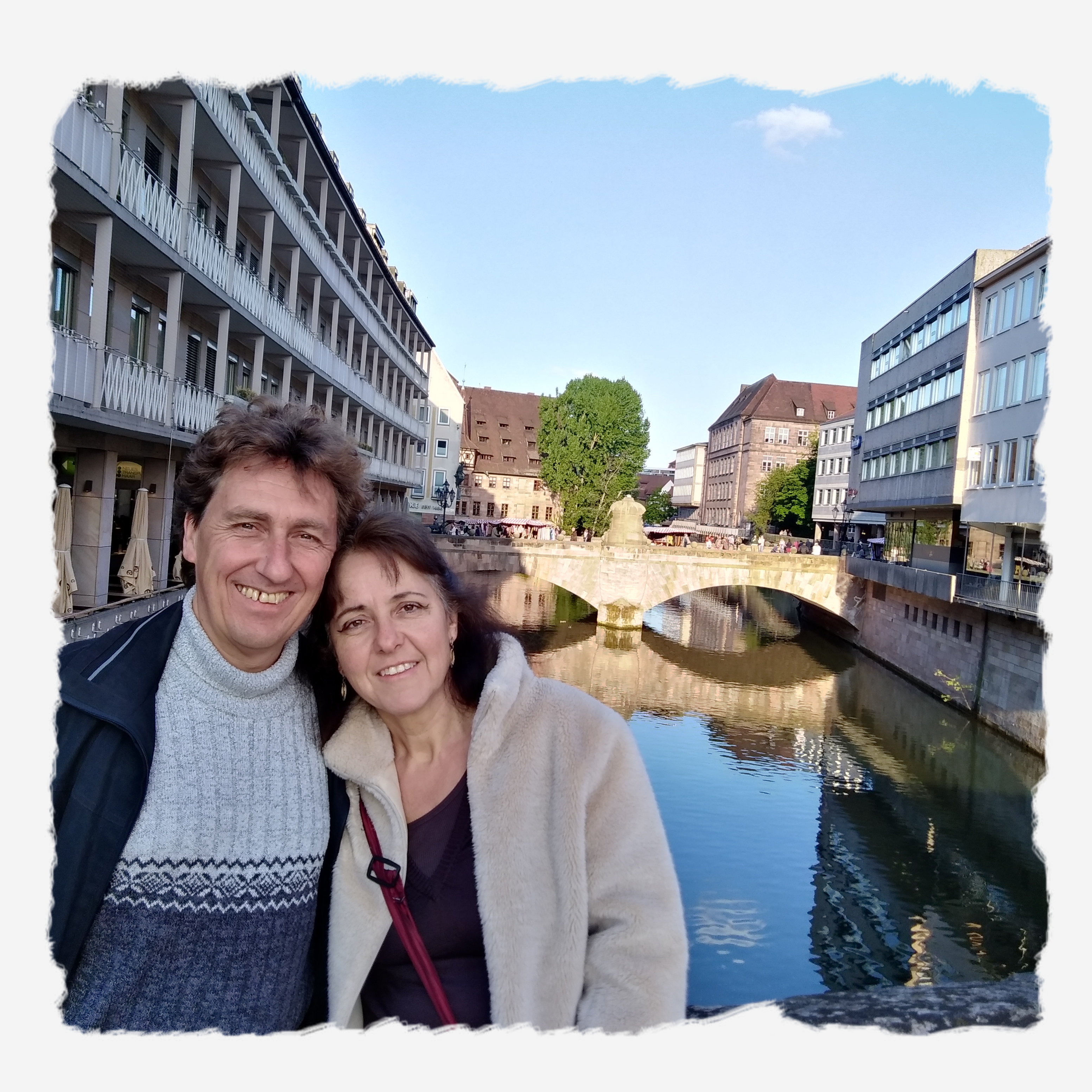In every relationship, communication serves as the foundation for understanding, trust, and connection
Good communication is an indispensable part of both personal and professional life. It is the bridge that connects our thoughts, emotions, and actions with those around us. Whether it's nurturing personal relationships, collaborating in the workplace, or engaging in social settings, effective communication is the backbone of successful interactions. But what does good communication look like, and how can one master it? In this article, we'll delve into the fundamental elements of effective communication, explore diverse communication methods, and understand what constitutes healthy communication.
Communication is a multifaceted process of exchanging information, ideas, and emotions between individuals. It is not merely about speaking or writing; it encompasses listening, interpreting, and understanding. Effective communication is achieved when the message intended by the speaker is accurately perceived and comprehended by the listener.
The sender is the originator of the message, the one who initiates the exchange. The effectiveness of communication begins with the sender's ability to clearly articulate their thoughts and intentions. A sender must consider the audience's level of understanding and tailor the message accordingly to ensure clarity.
The message is the core content being communicated. It can be an idea, information, or an emotion. Crafting the message with precision and purpose is crucial. A well-structured message is free from ambiguities and is designed to convey the intended meaning without confusion.
The medium is the channel through which the message is transmitted. It can be verbal, non-verbal, written, or digital. Choosing the appropriate medium is vital as it influences how the message is received and interpreted. Factors such as urgency, complexity, and the nature of the audience should guide the selection of the medium.
The receiver is the individual or group to whom the message is directed. Effective communication requires the receiver to actively engage with the message, interpreting and processing it accurately. The receiver's background, experiences, and biases can affect how the message is understood.
Feedback is the response from the receiver that completes the communication loop. It indicates whether the message was understood as intended. Effective feedback is constructive and facilitates a two-way dialogue, allowing for clarification and adjustment of the message if necessary.
Good communication is marked by several pivotal elements that ensure messages are clearly conveyed and comprehended.
Clarity and precision are the cornerstones of effective communication. When communicating, it's important to articulate thoughts in a direct and concise manner. Avoiding vague language and focusing on specific details can greatly reduce the likelihood of misunderstandings. Using relatable examples and avoiding technical jargon also enhances clarity, making the message accessible to a wider audience.
Active listening is a critical aspect of effective communication. It involves giving full attention to the speaker, acknowledging their message, and responding appropriately. Active listeners refrain from interrupting, instead waiting for the speaker to finish before offering feedback. By asking relevant questions and summarizing the speaker's points, active listeners demonstrate their engagement and respect, fostering a more productive dialogue.
Empathy is the ability to understand and share the feelings of others. Good communicators strive to put themselves in the shoes of their audience, considering their perspectives, emotions, and circumstances. This empathetic approach builds trust and rapport, facilitating a deeper connection and more meaningful interactions. By acknowledging the emotions behind the words, communicators can address concerns and offer support in a more compassionate manner.
Open-mindedness is the willingness to consider new ideas, perspectives, and approaches. In communication, being open-minded means being receptive to different viewpoints, even those that challenge one's own beliefs. This openness fosters an environment of mutual respect and encourages healthy dialogue. By valuing diverse opinions, communicators can enrich discussions and arrive at more comprehensive solutions.
Non-verbal cues, such as body language, facial expressions, and tone of voice, play a significant role in communication. These elements often convey more than words alone. Being attuned to non-verbal signals can provide insights into the speaker's true feelings and intentions. Effective communicators are mindful of their own non-verbal signals, ensuring they align with their verbal messages to reinforce the intended communication.
Different situations demand different communication approaches. Here are some of the most effective ways to communicate in various contexts:
Face-to-face communication is often the most effective way to convey messages, especially when dealing with complex topics or sensitive issues. It allows for immediate feedback and the use of non-verbal cues, such as body language and eye contact, to enhance understanding. In-person interactions create a personal connection that can be pivotal in resolving conflicts or building strong relationships. It's important to choose the right setting for face-to-face conversations to minimize distractions and foster open dialogue.
Written communication, such as emails, reports, and text messages, is essential for conveying detailed information and maintaining records. It provides the opportunity to carefully craft messages, ensuring clarity and coherence. However, written communication lacks the immediate feedback and non-verbal context of face-to-face interactions, which can sometimes lead to misinterpretations. To mitigate this, it's crucial to be clear, concise, and considerate of the reader's perspective. Including a summary or call to action can guide the reader's response and facilitate further communication.
In the digital age, communication methods like video calls, social media, and instant messaging have become prevalent. These platforms offer convenience and the ability to connect with people across the globe. However, digital communication requires careful attention to professionalism and clarity. The absence of physical presence can sometimes lead to a lack of context, so it's important to be explicit and thoughtful in digital exchanges. Utilizing features like emojis or video call expressions can help convey emotions and intentions more effectively.
Healthy communication is a balanced exchange where all parties feel heard, respected, and understood. It is the foundation of strong relationships and a positive environment, whether at home, work, or in social settings.
Healthy communication is rooted in respect and courtesy. This involves listening attentively, acknowledging different opinions, and refraining from interrupting or speaking over others. Using polite and inclusive language fosters an atmosphere of mutual respect, encouraging open dialogue. By valuing each participant's contributions, communicators create a safe space where everyone feels valued and empowered to share their thoughts.
Providing constructive feedback is a crucial element of healthy communication. It involves offering suggestions for improvement rather than criticism, focusing on the positive aspects of performance while addressing areas for growth. Constructive feedback should be specific, actionable, and delivered in a supportive manner. This approach builds trust and motivates individuals to strive for excellence, reinforcing a culture of continuous improvement and collaboration.
Conflicts are inevitable in any relationship, but healthy communication can facilitate effective resolution. Addressing conflicts calmly and objectively, rather than assigning blame, is key to finding mutually agreeable solutions. By focusing on shared goals and interests, communicators can navigate disagreements without damaging relationships. Encouraging open dialogue and considering each party's perspective can prevent conflicts from escalating and promote long-term harmony.
Emotional awareness is the ability to recognize and understand one's own emotions and those of others. It is a critical component of healthy communication, as emotions can significantly impact interactions. Being aware of emotional triggers and managing them effectively can prevent negative emotions from derailing conversations. By acknowledging emotions and addressing them constructively, communicators can maintain a positive atmosphere and facilitate more meaningful exchanges.
Enhancing communication skills requires practice, reflection, and a commitment to growth. Here are some strategies to help you become a more effective communicator:
Developing active listening skills involves paying close attention to the speaker, refraining from distractions, and engaging with the message. Asking questions for clarification and summarizing the speaker's points can demonstrate your understanding and interest. Providing verbal and non-verbal feedback, such as nodding or affirming statements, shows that you are fully present in the conversation.
Effective communicators prioritize clarity and brevity. Using simple language, avoiding jargon, and focusing on the main points help maintain the listener's attention and reduce confusion. Structuring your message logically and providing examples can enhance comprehension. Remember that clarity is not about oversimplifying but about making the message accessible and relatable to the audience.
Empathy involves putting yourself in the shoes of others to understand their feelings and perspectives. By actively listening and acknowledging emotions, you can respond more effectively and build stronger connections. Practicing empathy requires openness, patience, and a willingness to explore different viewpoints. It fosters a sense of understanding and compassion, enriching your interactions with others.
Being receptive to feedback is essential for continuous improvement. Constructive criticism can provide valuable insights into your communication style and help identify areas for growth. Embrace feedback with an open mind, viewing it as an opportunity to learn and refine your skills. Demonstrating a willingness to adapt and evolve not only enhances your communication but also sets a positive example for others.
Non-verbal cues play a significant role in how messages are received. Being mindful of your body language, facial expressions, and tone of voice can reinforce your verbal communication. Practicing positive non-verbal signals, such as maintaining eye contact and using gestures, can enhance your message's impact. Observing others' non-verbal cues can also provide insights into their emotions and reactions, allowing for more empathetic and responsive communication.
Good communication is the cornerstone of successful relationships, both personally and professionally. By understanding the components of communication, embracing the characteristics of effective communication, and practicing diverse communication methods, you can enhance your interactions and build stronger connections with others. Remember that healthy communication is about respect, empathy, and understanding—key elements that contribute to a harmonious and productive environment.
By focusing on improving your communication skills, you'll be better equipped to navigate the complexities of human interactions and create lasting, positive relationships. Embracing a mindset of continuous learning and adaptation will empower you to communicate more effectively and foster meaningful connections in all areas of life.
Make your appointment now
We take only 5 couples with us
Reserve your spot now!
Over the years, the infatuation often gives way to living side by side as partners. In everyday life with children, a career and different leisure activities, you lose the connection.


Susana and Markus Kessler have been in a happy relationship for more than 25 years. To ensure that their partnership continues to grow, they have repeatedly attended coaching and training sessions on all aspects of their relationship, including communication, money management, and parenting.
A particularly meaningful chapter in their lives was raising two severely traumatized foster children. This journey required extraordinary patience, resilience, and dedication. Through love, understanding, and the knowledge they gained from their own personal development, they were able to provide a nurturing and supportive environment for their foster children to heal and grow. This life-changing experience further deepened their empathy and strengthened their ability to help others facing challenges in their relationships and lives.
They have built up several businesses and have become financially free as a result. They have also attended countless coaching and training sessions for their business on sales, marketing, social media, business development, and investing.
They have been trained coaches since 2015 and are passionate about passing on their knowledge. Their coaching approach is practical, solution-oriented, and individually tailored to the needs of their clients. They offer comprehensive support in the areas of personal development, relationship building and maintenance, financial education, and entrepreneurial growth.
Susana and Markus offer various coaching formats to ensure maximum flexibility for their clients. These include:
With their many years of experience, in-depth knowledge, and the invaluable lessons learned from raising foster children, Susana and Markus Kessler help people to strengthen their relationships and make the most of their lives and opportunities.

Our knowledge comes from 25 years of relationship experience as well as training and further education with the world's best in their field, including the NLP Academy Switzerland, J.T. Foxx, T. Harv Eker, Landmark Wordwide, John Kehoe, Maja Storch and many more.

Every partnership is different. We recognize your individual personalities and work with your own resources to support you perfectly on your path to the perfect partnership.

Anyone who talks about their relationship deserves absolute discretion and an atmosphere of trust. That's why we offer you an empathic environment in which you feel safe and secure and can speak openly with each other.